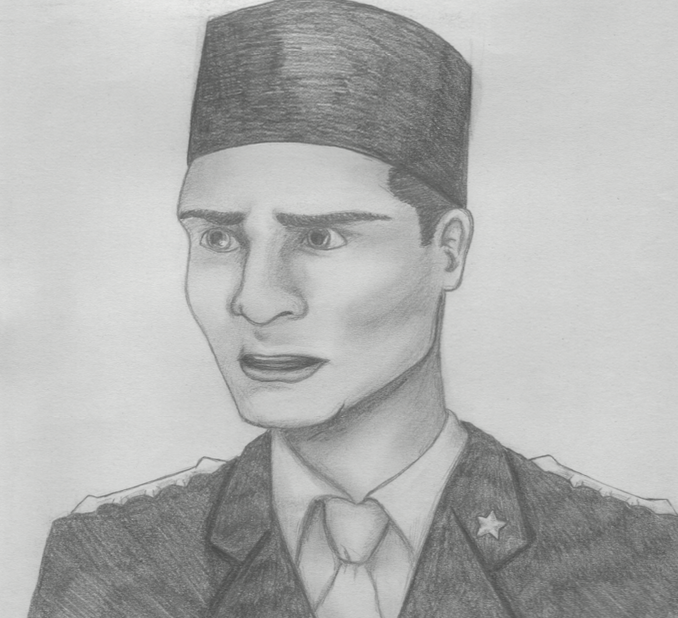
The films directed by Salah Abou-Seif (1915–1996) are some of the most socio-politically analytical in classical Egyptian cinema. Having studied cinema in Italy during the realist film wave, Abou-Seif was a neo-realist director who sought to create films that question the validity of the social norms, which create and subsequently perpetuate social issues. When it came to the subjects of his films, Abou-Seif chose themes through which he could illustrate the struggles that society was undergoing in the 1950s, including long lasting pressures of colonization, issues brought about by gender roles which no longer fit the changing social context, and the survival of low-income families. Abou-Seif’s realistic lens in evaluating the social norms shows that there was room for the expression of progressive ideas. The social issues point to gender inequalities and societal unrest, but the critique of these matters through film also asserts the conceptual merit of this form of artistic expression.
One of the most important films in the history of Egyptian cinema is
Beginning and End
(1960), based on a novel by Nobel prize winner Naguib Mahfouz, who was known for his portrayal of socio-political concerns through a profound elaboration on the characters and the details of their daily lives. Beginning and End, which claims the feel of an epic social drama, tells a story that is emblematic of Egyptian society in the 1960s: a family that suffers from severe poverty and struggles to find a stable future. The family, consisting of a single mother, three sons and a daughter, does not have a source of income in the wake of the father’s death. The fact that the mother and the eldest daughter do not work, due to not having received an adequate education to gave empowerment, poses a fundamental problem for the family’s financial situation. This issue is exacerbated because the two youngest sons are students and thus, cannot work. The mother wants her sons to continue their education so that they can create for themselves opportunities for a better living and escape the poverty of the family. However, education is not similarly prioritized for the daughter, despite the unsatisfactory status caused by unemployment of women. This stems how uncommon it was for a woman to even partially provide for her family at the time. As a result, the daughter works as a prostitute, which is considered taboo, to provide her family with a source of income. However, she does not explain to her family how she earns the money. Abou-Seif demonstrates that breaking societally imposed restrictions is a way to maintain the family’s life; yet, the fact that she keeps her work hidden demonstrates that society is not concerned with the means by which the family survives, even if the means are denounced by society.
The only other source of income for the family is the pension of the deceased father, and even this is not consistently given to families due to the administrative corruption caused by English colonization of Egypt which lasted from 1882 to 1956. The female dependence on male financial support, which is controlled by colonization, functions within a complex social dynamic that imposes its weight on the individuals in entraps. The ethical grounds for prostitution becomes a relative matter because unlike most women in her social class, prostitution is how the daughter supports her family.
The young son, played by Omar Sharif, seeks prestigious status in society as a soldier and even seeks to marry the daughter of an important man who has strong army connections. Certainly, these endeavors would enable him to escape from the grasp of poverty. The pressures of the socio-political issues demonstrated in colonization, and the lack of female education and employment seep through the hierarchy of social levels and wields the greatest influence on the low-income families. The young son’s desire to be part of an “important” family shows that the way to improve one’s living condition can not be achieved through hard work alone — being backed by high-status families served as a serves to improve one’s social and thus, professional standing. Abou-Seif relies on handsome Sharif’s performance to add a realistic sense in the scene when the young soldier pretends to his mother and sister that military school is strict to a horrifying point. Dressed in a prestigious military suit, his performance is persuasive.
Abou-Seif questions whether the young man, according to society, is ambitious or ethically corrupted by the social institutions that survive on his sense of inferiority. The perpetua-tion of the struggles witnessed by the lower social class keeps the foundations of the higher class secure. A way out of this restriction for women would receive an equal opportunity for education and work. The social norm that women cannot work perpetuates the struggle of the family as well as the larger struggle within society of the lower social class. The key is to break through norms, especially the ones that impede social reform.
This writing project is supported by the Kirkland Endowment Fund.
The Kirkland scholarship recognizes students who demonstrate a commitment to the needs and interests of women. It perpetuates the legacy of Kirkland College, which was the women’s college, coordinate with Hamilton, from 1968 to 1978.

















